In December, 1944, Americans and their Allies were advancing through Europe with the goal of routing the Axis and bringing the war to an end. Unknown to them, during this very cold and snowy winter, Adolf Hitler and his generals were secretly plotting an offensive of their own, which came to be known as the Battle of the Bulge. On December 16, Axis forces attacked with great ferocity, pushing back the American lines, creating the Aca,!A"bulge.Aca,!A?
The Germans had planned well, attacking in a sparsely guarded portion of the lines where the U.S. 106th Division, new to the Theater, was stationed. The freezing, tired, and inexperienced Americans were taken by surprise, and many soldiers became casualties. As the Germans advanced, it became clear to both sides that two Belgian cities were lynchpins to the entire operation: St. Vith and Bastogne. St. Vith fell, leaving Bastogne as the major obstacle standing in the GermansAca,!a,,c way.
On December 22, 1944, the Germans had surrounded Bastogne, and their artillery was pounding the city. The U.S. 101st Airborne Division and elements of the 9th and 10th Armored Divisions occupied the city. The 101st Division Commander, Major General Maxwell Taylor, had been sent to Washington, D.C., and a Brigadier General, Anthony C. McAuliffe, the Division Artillery commander, was in command.
Fighting was intense, and the situation was bleak. Suddenly and unexpectedly, a German delegation consisting of a Major, Captain, and two enlisted men showed up under the cover of a white flag bearing a message demanding the Americans surrender.
General McAuliffe read the message, and then, it is said, one of his officers uttered in a disbelieving voice, Aca,!A"They must think we are nuts!Aca,!A? Huddling with his officers, he then formulated a reply that summed up their reaction to the German proposal: Aca,!A"Nuts.Aca,!A? Nothing more needed to be said. The German soldiers carried his reply back, and the battle resumed. General McAuliffe and his GIAca,!a,,cs held Bastogne, which was later relieved by a column of George C. PattonAca,!a,,cs Third Army.
Several days later, General McAuliffe had the German message and his reply reprinted in his Christmas newsletter to the troops. Needless to say, his words and actions were well received by the GIAca,!a,,cs, giving their morale a boost. Their commander was summing up in words what they had known for a long time: American soldiers stick together, fight together, and win together!
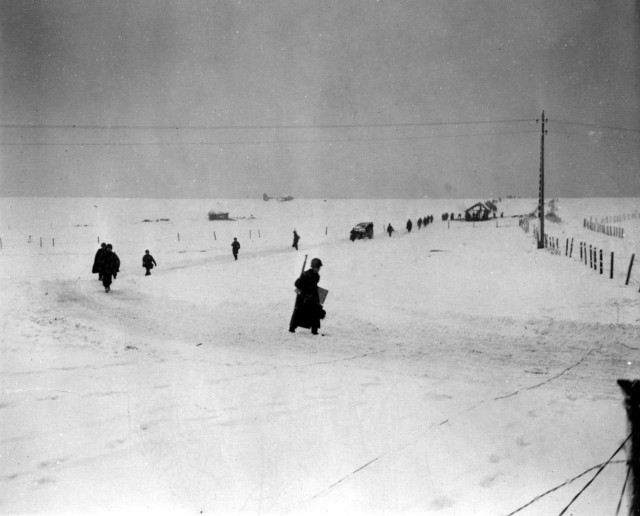
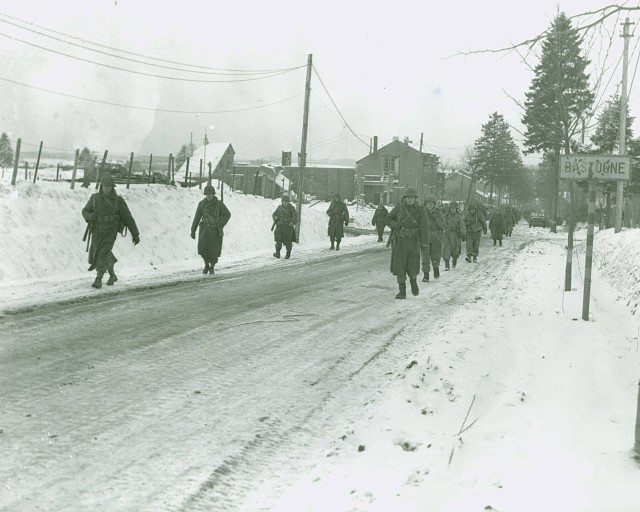
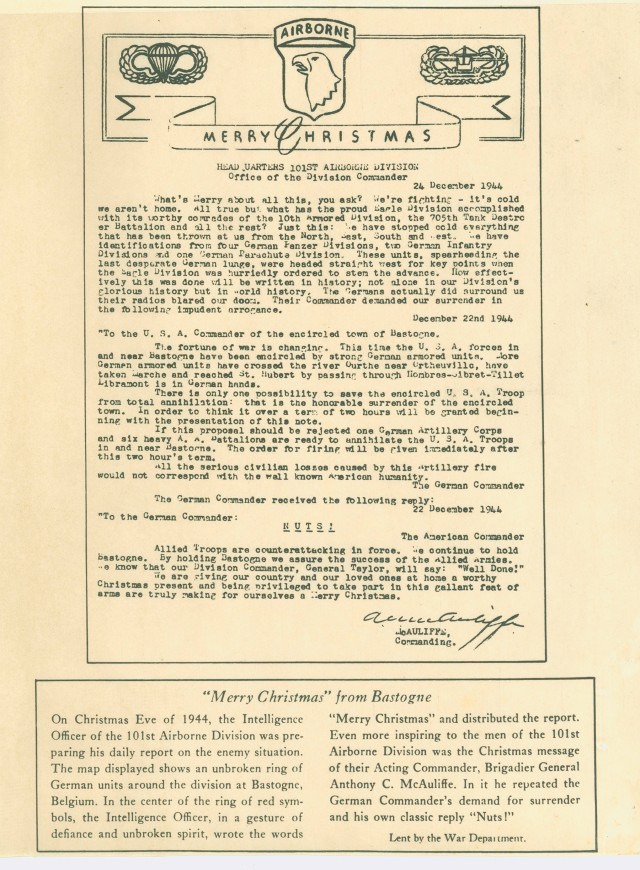
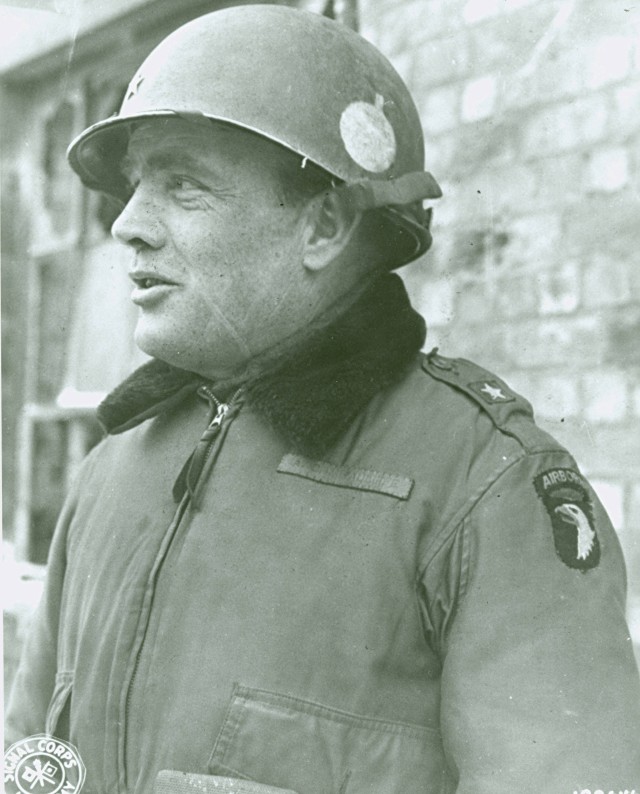
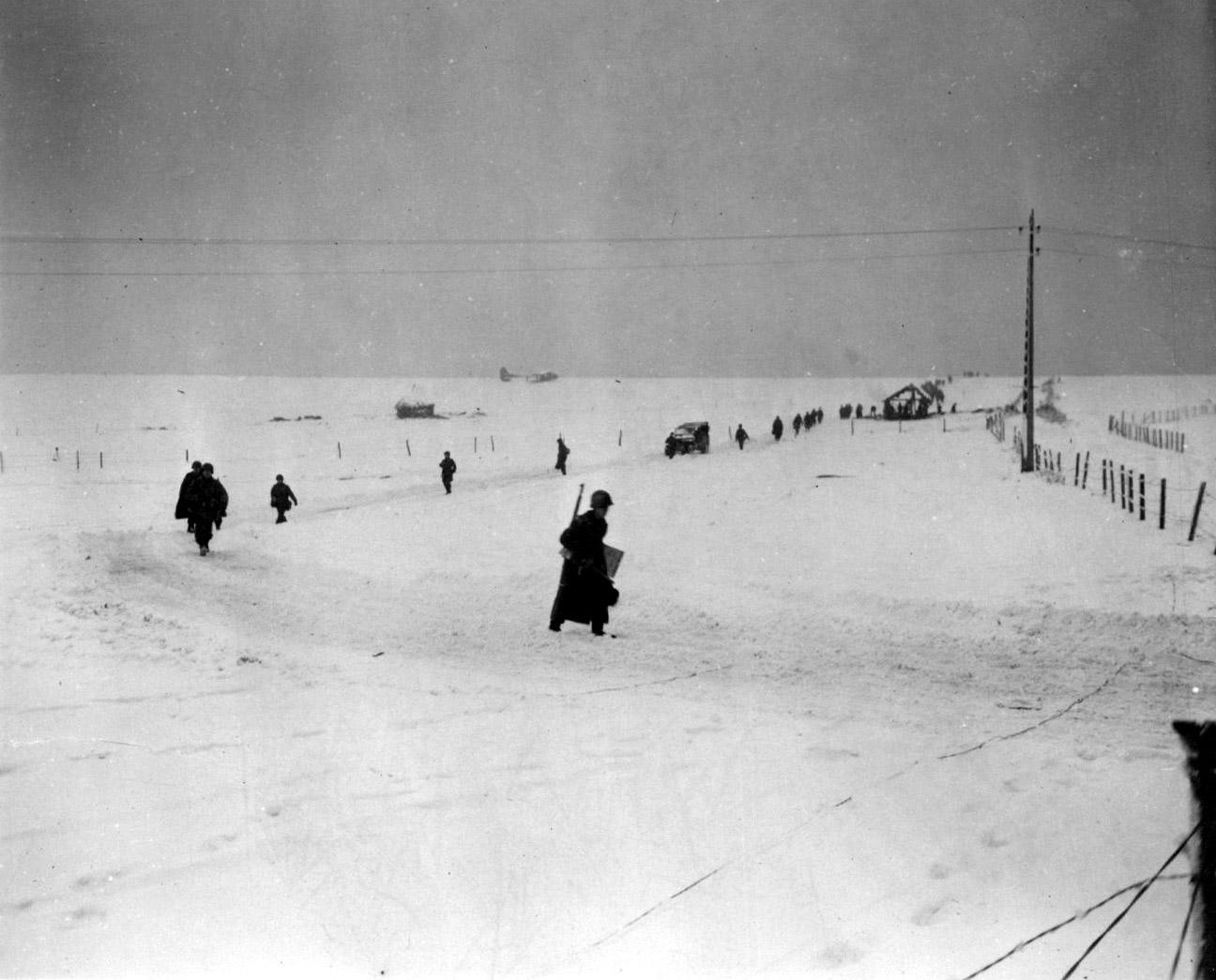
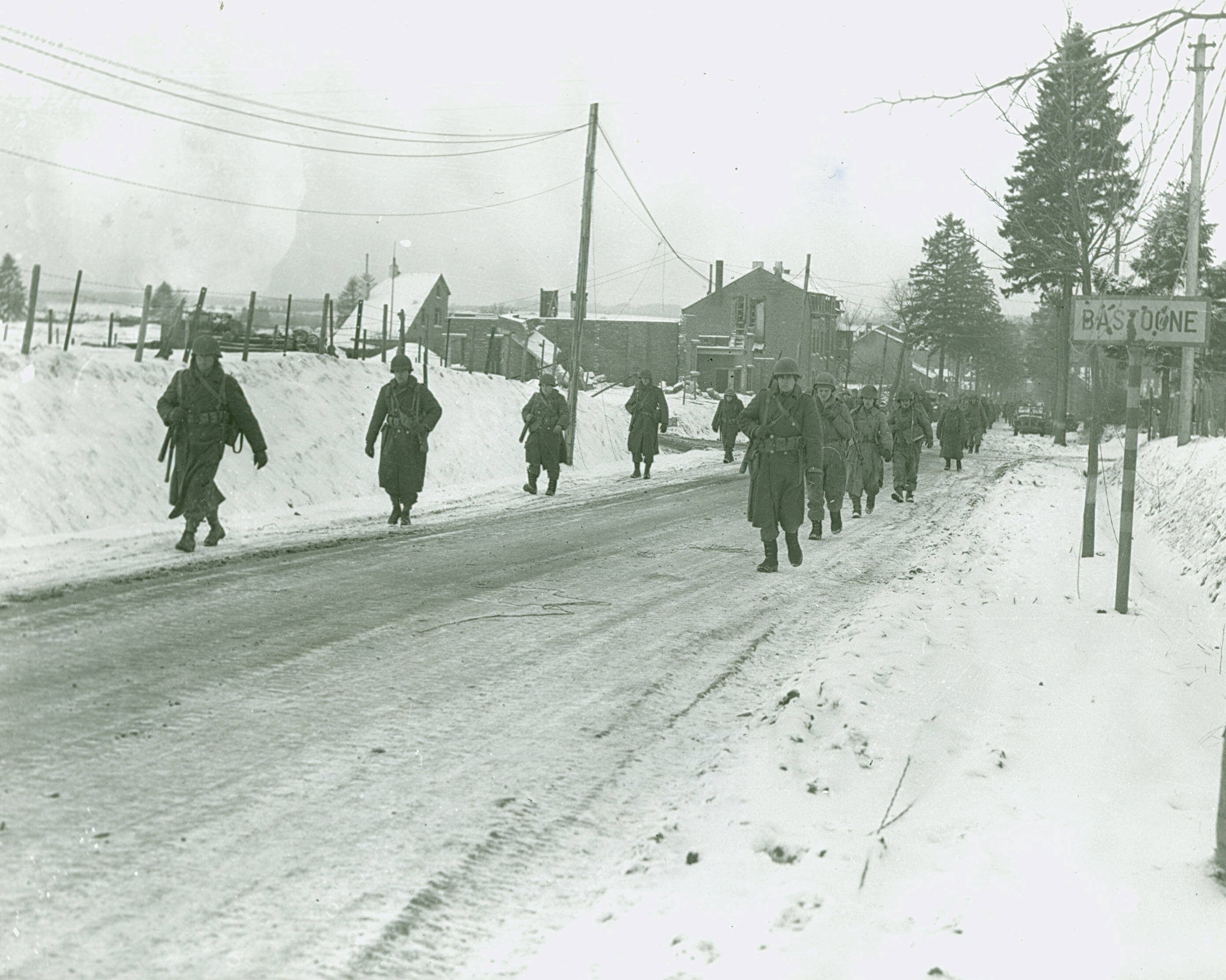
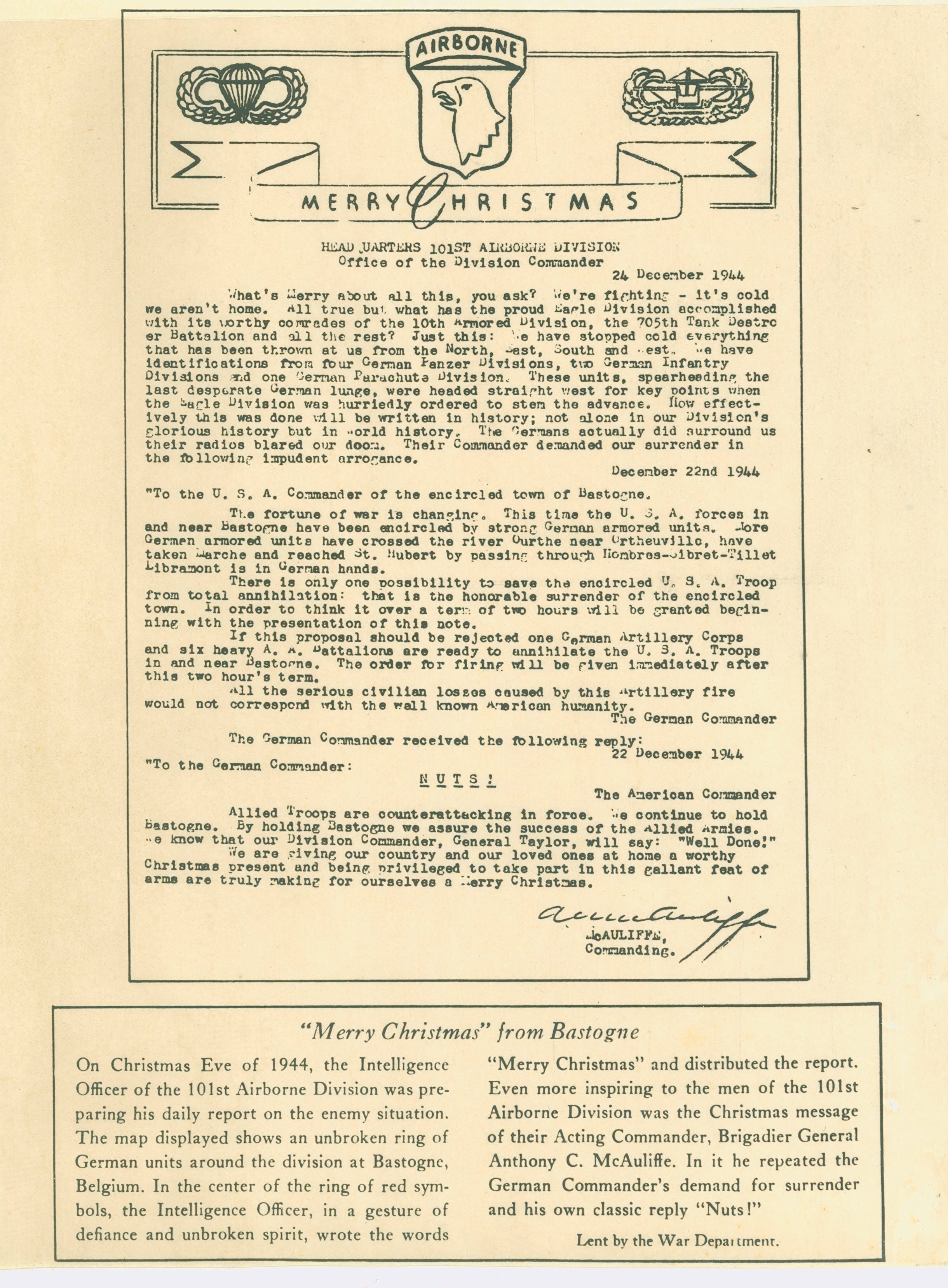
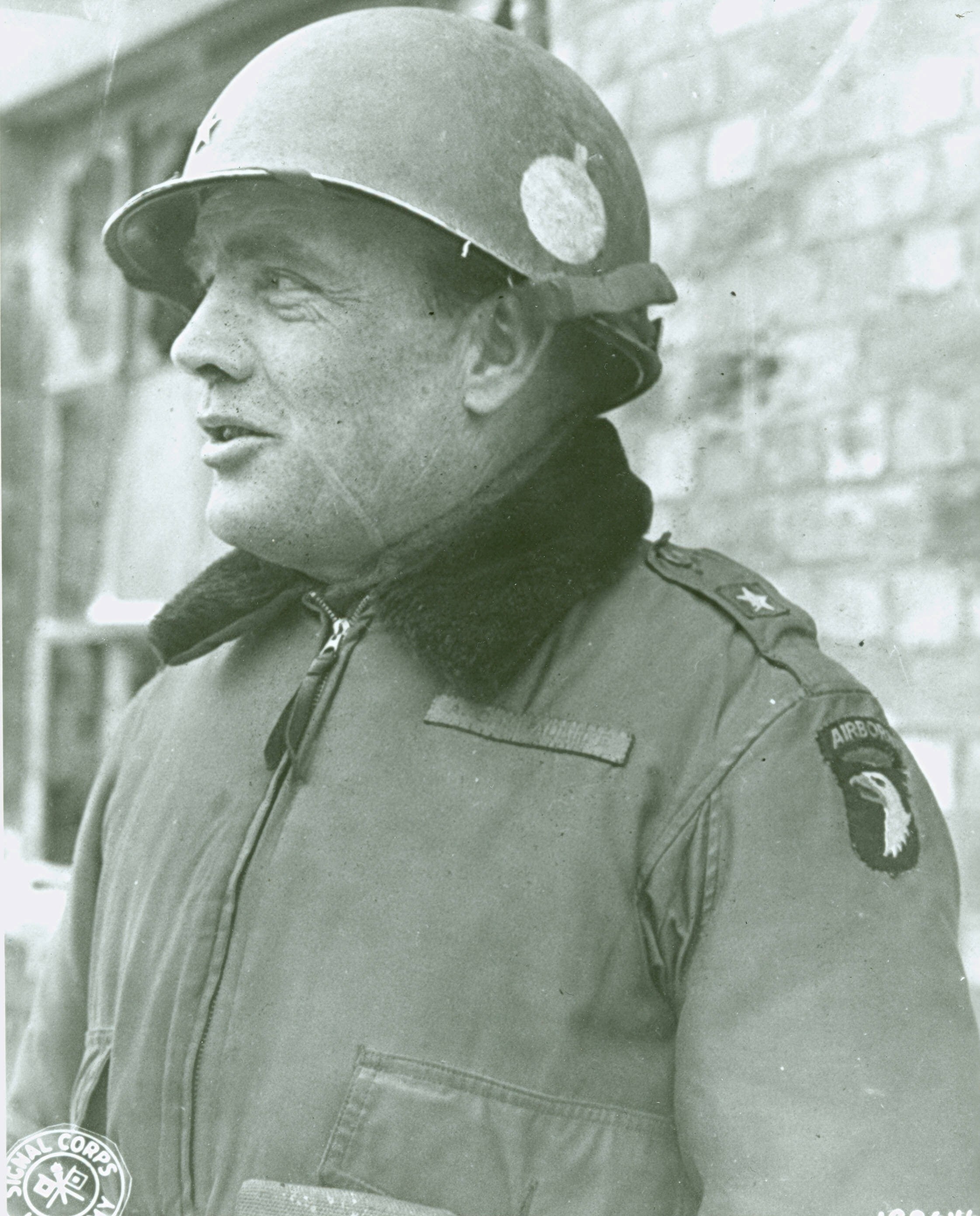
Social Sharing